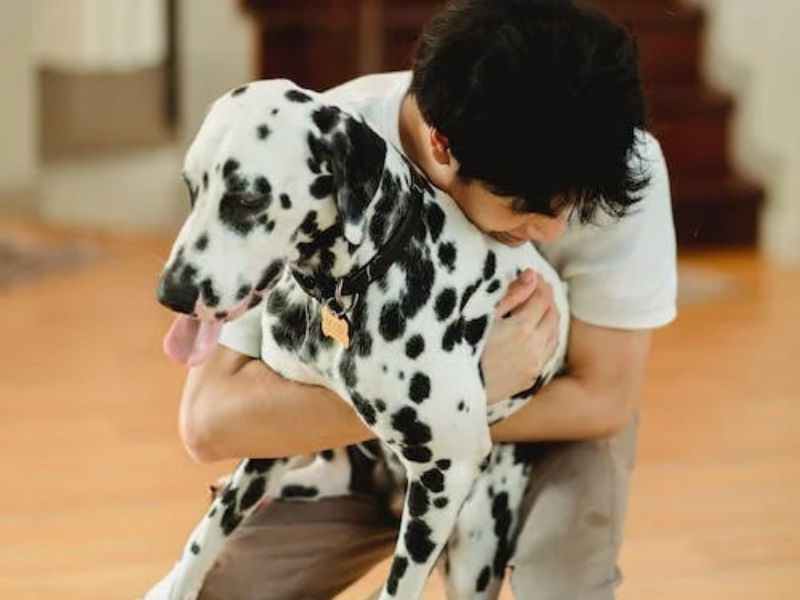Pets are beloved members of our families, and when they pass away, we often feel a profound sense of grief. But have you ever wondered if our pets also experience distress when they lose a companion or human they are attached to? The answer is yes, pets do grieve, and it’s essential to understand their emotions to help them through the grieving process.
Grief is a natural reaction to loss; pets can experience it like humans. Animals form strong emotional bonds with their owners and other pets in the household, and losing a companion can be devastating. They may show signs of grief, such as decreased appetite, lethargy, sleeping more than usual, or even vocalizing their distress through whining or howling.

Image Credit: Pexels/Alina Skazka
Just like humans, pets need comfort and reassurance during difficult times. It is possible to help your pet through the grieving process in several ways. First and foremost, give them plenty of love and attention. Spend extra time playing, petting, and cuddling with them. It will help them feel safe and secure during this challenging time.
Another essential thing to do is to keep their routine as consistent as possible. Pets thrive on routine, and keeping their daily routine as normal as possible will help them feel more secure. Stick to their regular feeding schedule, walk them simultaneously, and keep their daily activities as consistent as possible.
If you have lost another pet, allowing your surviving pets to say goodbye is essential. They can smell the body or participate in a burial ceremony. Allowing them to say goodbye will help them understand that their companion is gone and give them closure.

Image Credit: Pexels/Bethany Ferr
Lastly, if your pet’s grief seems overwhelming or lasts for an extended period, don’t hesitate to contact your veterinarian. They may be able to recommend additional support or resources to help your pet through its grief.
For pets to grieve, it’s essential to understand their emotions to get through them. Give your pet love and attention, keep their routine consistent, allow them to say goodbye, and seek veterinary assistance when needed to help them navigate this difficult time.